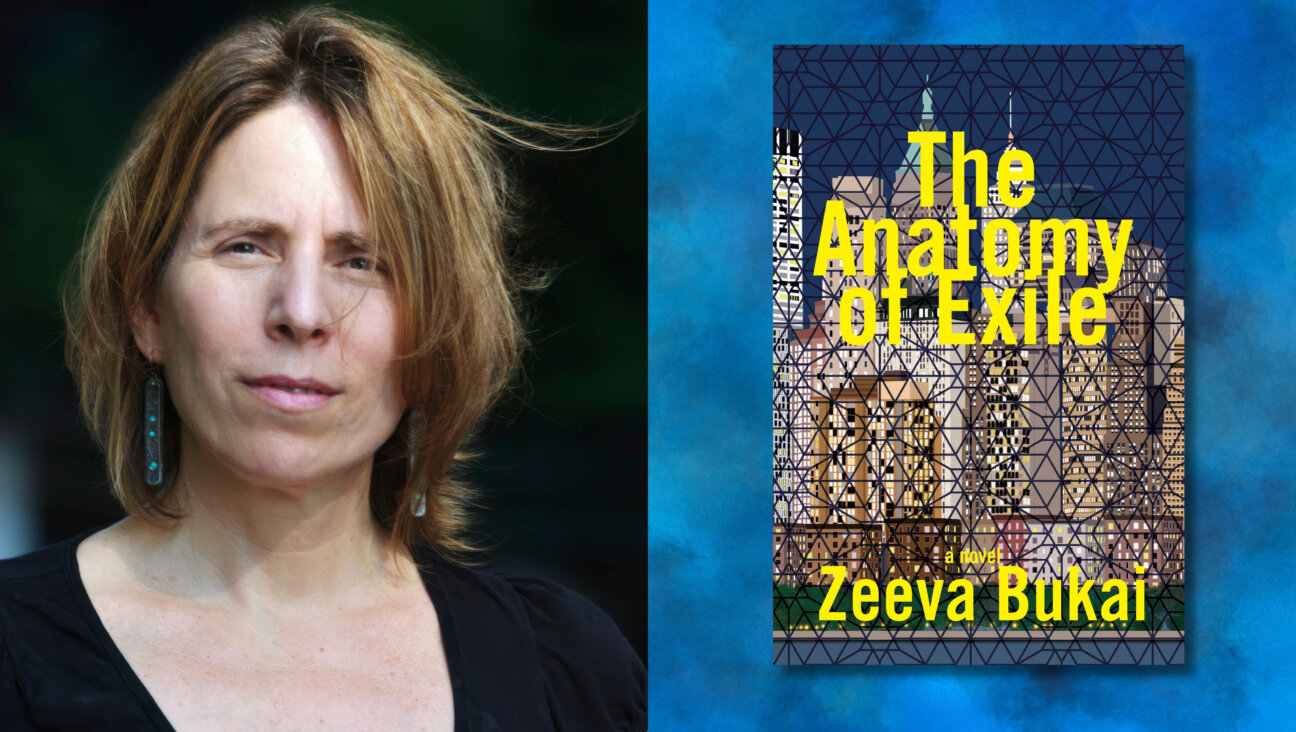From Awkward Fat Kid to Confident Gay Activist

Image by courtesy of barry losinsky

A plump, cherubic bar-mitzvah boy beams from the cover the new memoir “Oy Vey! I’m Glad I’m Gay!” (Intracoastal Media). That’s Barry Losinsky, the book’s author, a retired Maryland school psychologist and one of many unsung pioneers in a generation of gay men who came out when it still felt dangerous.
Born to Russian-immigrant parents, Losinsky grappled with his sexual identity — and weight issues — as the Vietnam war raged and race riots roared through Baltimore; with raw humor and disarming candor, the book details Losinsky’s journey from awkward fat kid to sexually confident, happily partnered activist. The Arty Semite caught up with him by email in suburban Baltimore, where he lives with his partner George.
Michael Kaminer: We’re talking just a few weeks after the DOMA ruling. Did you ever think you’d see something like it in your lifetime?
Barry Losinsky: I never in my wildest dreams ever thought that gay and lesbian individuals would be allowed to marry in my lifetime. My major concern, and that of my life partner of 46 years, had been the inheritance tax when one of us was no longer around. We’ve worked hard over the years for what we’ve got, and the inheritance tax in our state is the 10%. That’s a lot of money. So years ago, he legally adopted me as his son to avoid that 10%. It’s been a marvelous conversation piece.
Five years ago my life partner was diagnosed with multiple myeloma (a cancer of the blood). When he was given chemotherapy, he developed severe neuropathy in his legs and his hands, which has limited his ability to walk. I’ve become his full time caregiver. As they say, “for better for worse, in sickness and in health.”
Your memoir takes us all the way back to your immigrant Bubbe and Zeyde — much further than most coming-out stories go. Why bring them into it?
I wanted my reader to be very aware of my Jewish roots, since I am a Jew and will remain a Jew till the end. I am referring to my cultural identity and not my religiosity.
Baltimore’s practically a character in the book. How would you characterize the city’s influence on you?
It afforded me the opportunity to be exposed, growing up, to a multitude of cultures. Particularly that of the African-American subculture in a Black Ghetto. To summarize, it taught me tolerance.
What would you say characterizes gay Jews? You seem to draw some distinction in the book between us and other gay people.
GUILT!! What else can I say? I remember vividly saying to my mother, may she rest in peace, “Ma, guilt isn’t going to work anymore.” She looked at me with this vacant expression. She had absolutely no idea what I was saying or what she was doing.
You seem to have less trouble integrating your gay and Jewish identities than many who feel excluded from both. Can you explain what that was like for you?
Growing up, I knew no other gay Jews, except for family, of course. It wasn’t until I started traveling and started interacting with others of my ilk, at gay synagogues in Philadelphia, Fort Lauderdale, and Miami. Going to their Friday evening services certainly was “a trip down memory lane.” I remember going as a small child with my Zeyde to services on Saturday mornings, going to High Holy Day services (Rosh Hashanah and Yom Kippur) with my family (the only time), and leaving the main sanctuary during Kaddish.
The cover of is your bar mitzvah photo. Obviously, you are not glad you’re gay — yet. Why that image for the book?
I wanted to show the indelible influence that my Jewishness and my on-going addiction to food has played throughout my life. And my title, I hope, encapsulates the theme of “all’s well that ends well.”
There’s a picture of you as Cleopatra in the book. How did it feel to bare yourself that way?
At that point in my life I never gave it a second thought to be perfectly honest. It was our Halloween party and I was just ‘camping’ and being my well-adjusted self. And, as an aside, I was made up by a professional, and I feel I gave the impression of being a beautiful woman.
Is there a message you want the book to convey to young gay people? And to other Jews?
As concerns gay Jews, we’ve come a long way since my adolescence and young adult life. My message would be “it gets better.”
A message from our Publisher & CEO Rachel Fishman Feddersen

I hope you appreciated this article. Before you go, I’d like to ask you to please support the Forward’s award-winning, nonprofit journalism so that we can be prepared for whatever news 2025 brings.
At a time when other newsrooms are closing or cutting back, the Forward has removed its paywall and invested additional resources to report on the ground from Israel and around the U.S. on the impact of the war, rising antisemitism and polarized discourse.
Readers like you make it all possible. Support our work by becoming a Forward Member and connect with our journalism and your community.
— Rachel Fishman Feddersen, Publisher and CEO























